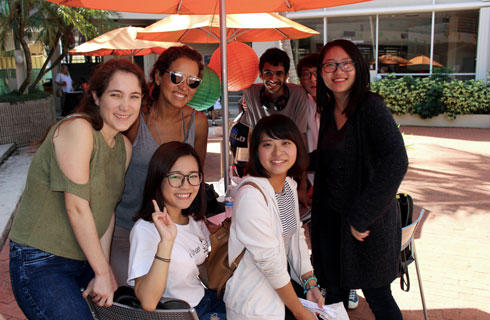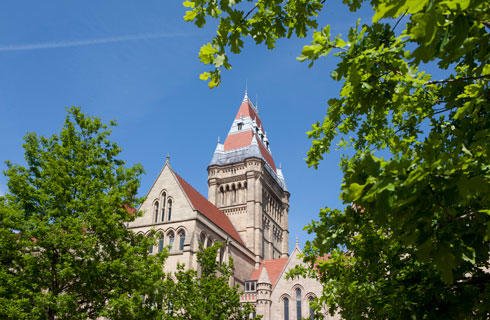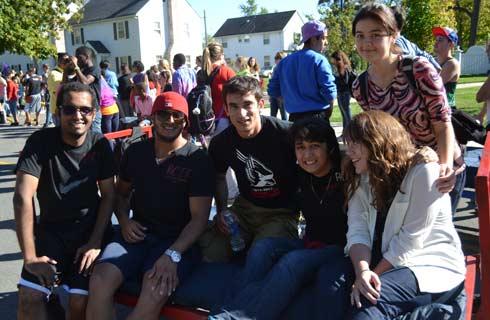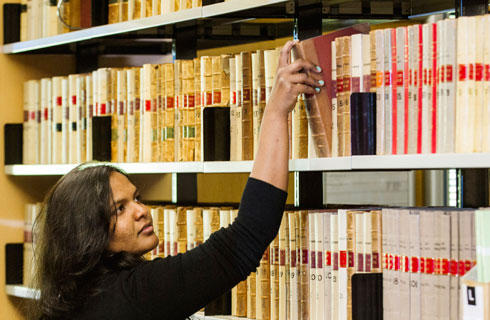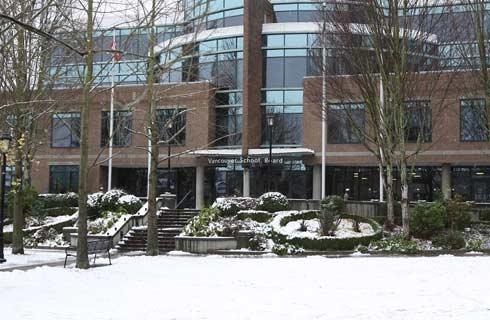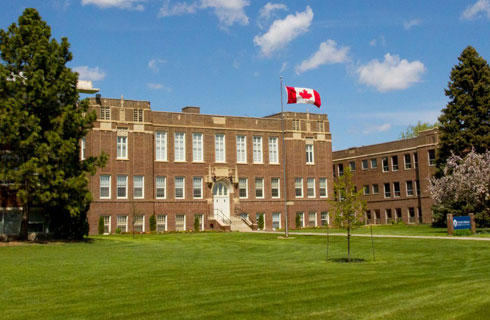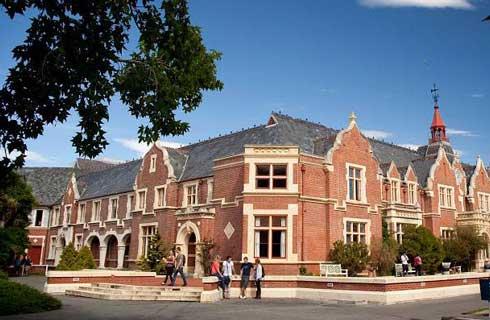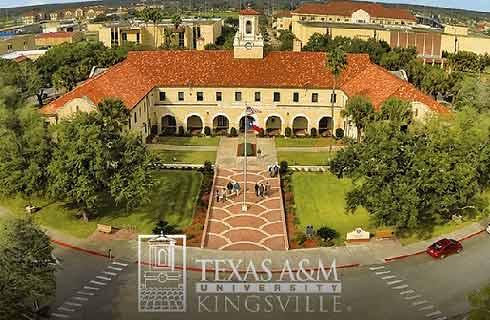国际学生入学条件
The degree programme is open to applicants from a range of disciplinary backgrounds (across the Arts and Humanities, Social Sciences, Computing Science and Natural Sciences), as well as those in the workforce who wish to obtain a higher qualification in this area.
Your Honours degree or equivalent should be in a relevant subject. Ideally students should have a 2:1 or above in their first degree. We will consider students with a 2:2, but the programme is not recommended for those with a low or borderline 2:2 (or equivalent) in their first degree.
IELTS Academic or UKVI 6.5 with a minimum of 6.0 in each sub-skill
IBT TOEFL 80 overall with 18 in reading, 23 in writing, 19 in listening and 21 in speaking
展开
IDP—雅思考试联合主办方

雅思考试总分
6.5
了解更多
- 雅思总分:6.5
- 托福网考总分:80
- 托福笔试总分:160
- 其他语言考试:Pearson Test of English (Academic) 62 overall with 60 in each sub-skill
CRICOS代码:
申请截止日期:请 与IDP联系 以获取详细信息。
课程简介
Heritage is a global phenomenon with diverse economic, social, and political roles. It encompasses the surviving tangible and intangible traces of the past, but also the processes and practices that frame heritage in the present and produce particular kinds of futures.<br><br>The aim of this degree course is to provide a critically informed interdisciplinary education in heritage. Core modules provide a foundation in current conceptual and theoretical debates about the nature of heritage and its importance in society, as well as practical issues relating to its conservation and management. Case studies, fieldtrips and input from heritage professionals introduce students to specific kinds of heritage and ‘real-world’ challenges, demands and opportunities.Heritage is a global phenomenon with diverse economic, social, and political roles. It encompasses the surviving tangible and intangible traces of the past, but also the processes and practices that frame heritage in the present and produce particular kinds of futures.<br><br>The aim of this degree course is to provide a critically informed interdisciplinary education in heritage. Core modules provide a foundation in current conceptual and theoretical debates about the nature of heritage and its importance in society, as well as practical issues relating to its conservation and management. Case studies, fieldtrips and input from heritage professionals introduce students to specific kinds of heritage and ‘real-world’ challenges, demands and opportunities.Heritage is a global phenomenon with diverse economic, social, and political roles. It encompasses the surviving tangible and intangible traces of the past, but also the processes and practices that frame heritage in the present and produce particular kinds of futures.<br><br>The aim of this degree course is to provide a critically informed interdisciplinary education in heritage. Core modules provide a foundation in current conceptual and theoretical debates about the nature of heritage and its importance in society, as well as practical issues relating to its conservation and management. Case studies, fieldtrips and input from heritage professionals introduce students to specific kinds of heritage and ‘real-world’ challenges, demands and opportunities.Heritage is a global phenomenon with diverse economic, social, and political roles. It encompasses the surviving tangible and intangible traces of the past, but also the processes and practices that frame heritage in the present and produce particular kinds of futures.<br><br>The aim of this degree course is to provide a critically informed interdisciplinary education in heritage. Core modules provide a foundation in current conceptual and theoretical debates about the nature of heritage and its importance in society, as well as practical issues relating to its conservation and management. Case studies, fieldtrips and input from heritage professionals introduce students to specific kinds of heritage and ‘real-world’ challenges, demands and opportunities.Heritage is a global phenomenon with diverse economic, social, and political roles. It encompasses the surviving tangible and intangible traces of the past, but also the processes and practices that frame heritage in the present and produce particular kinds of futures. The aim of this degree course is to provide a critically informed interdisciplinary education in heritage. Core modules provide a foundation in current conceptual and theoretical debates about the nature of heritage and its importance in society, as well as practical issues relating to its conservation and management. Case studies, fieldtrips and input from heritage professionals introduce students to specific kinds of heritage and ‘real-world’ challenges, demands and opportunities.
展开















